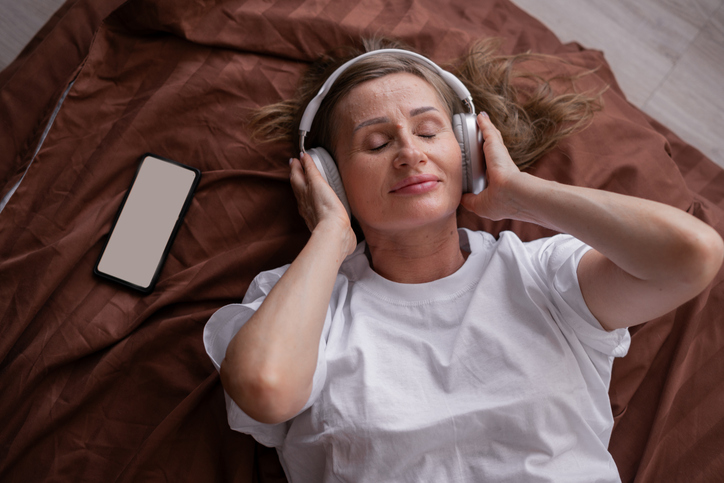Sleepless nights are common for many adults. Trips to the bathroom, insomnia, snoring (yours or a partner’s) or an inability to settle down all contribute to why we’re lying awake tossing and turning in the middle of the night.
“Sleep is the foundation of your health,” explains Federico Cerrone, MD, Atlantic Health System associate medical director for Sleep and Pulmonary and medical director of the Atlantic Health Sleep Program. “A good night’s sleep helps improve almost all aspects of your health – your immune system, weight, blood pressure, cognition, heart, as well as your physical, emotional and mental health.”
Retrain yourself to sleep
The first step in getting a good night’s sleep is to retrain yourself how to sleep.
“If you’re struggling with sleep or just want to get a better night’s sleep, go back to the basics and make sure you’re doing everything you need to get a good night’s sleep,” Dr. Cerrone encourages.
A specialist can share more targeted advice on creating a routine that’s right for you, but here are a few tips to get you started:
- Avoid caffeine in the afternoon.
- Limit alcohol during the evening.
- Don’t use screens before bedtime (including the TV).
- Exercise during the day.
- Create a calming environment in your bedroom.
- Meditate or practice mindfulness to help your mind and body relax before bed.
When to see a specialist
Dr. Cerrone encourages anyone who thinks they are not sleeping well to see a sleep specialist.
“Many people think they’re getting enough sleep or that it’s normal to be tired during the day,” he shares. “It’s important to think about how much the lack of sleep is affecting you. Are you drinking coffee in the afternoon to stay awake? Are you nodding off while watching TV? Does your partner complain about your snoring or being restless at night?“
You don’t even realize that there is another level where you can feel even better with a proper good night’s sleep. Sleep is important to your health. Are you really getting enough?” Dr. Cerrone finishes.
Sleep specialists like Dr. Cerrone work to address sleep disorders holistically. It starts with an open and honest conversation about sleep habits, health history and other factors that may impact sleep. Dr. Cerrone often encourages his patients to keep a sleep log to get a true idea how well (or poorly) they sleep at night. He cautions against relying on apps.
“Apps on watches don’t measure sleep very accurately,” he explains. “If you’re concerned about how much sleep you’re getting, talk to a doctor. There are other ways to get a clearer and more accurate assessment of sleep habits.
”Sleep disorder treatment is tailored to the individual. It addresses many factors that interfere with sleep, and may include:
- Neurology consult to diagnose any underlying condition that may be causing the sleep disorder.
- Cognitive behavioral therapy to improve bedtime habits, reduce stress and anxiety, and improve mindfulness.
- Medication to help you fall and stay asleep or to address an underlying condition that interferes with sleep (like anxiety or depression). You may also need to change medications if one is keeping you up at night.
Be proactive about your health
Staying up to date on annual wellness exams and screenings is important. So too, are the occasional trips to specialists to address sleep issues or any other health concerns that are nagging you.
Common sleep problems
There are many things that can keep us awake at night, from too much caffeine and stress to a run-of-the-mill cold. Serious sleep disorders can also be the culprit. The most common sleep issues Dr. Cerrone helps adults address include:
Insomnia
Restless leg syndrome
Sleep apnea
Narcolepsy
REM sleep behavior disorder (SBD)












